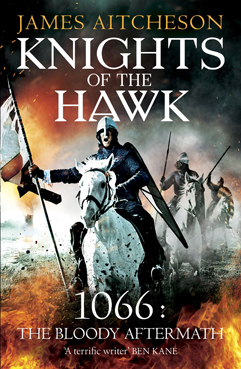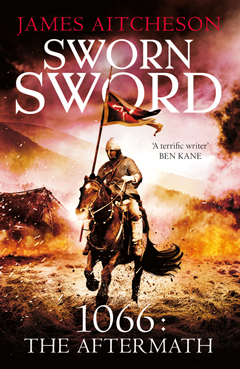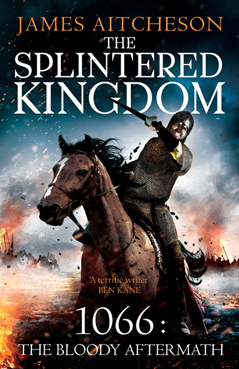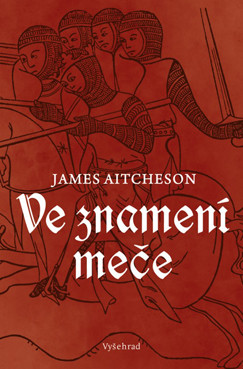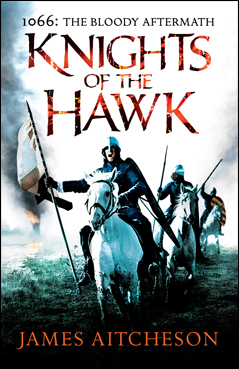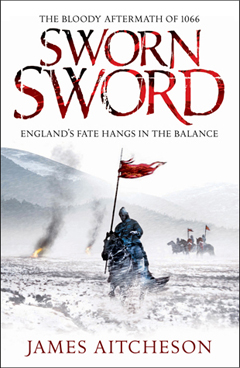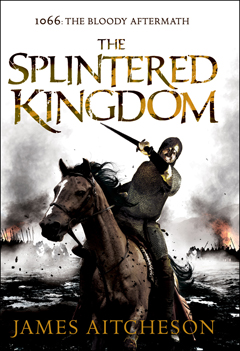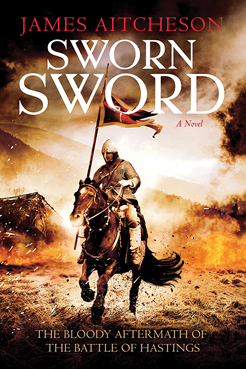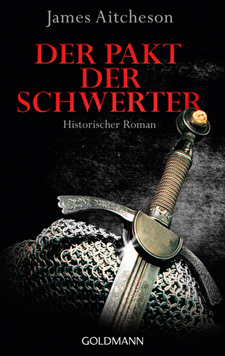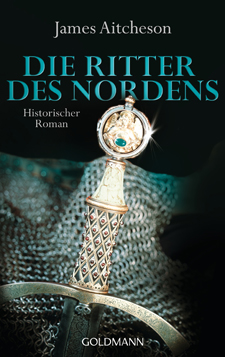Q&A
Below are a few of the questions that I most frequently get asked about my novels and my writing process.
If you have any questions that aren’t answered here, feel free to get in touch with me by email through the Contact page.
On writing
Do you have a writing routine?
Novel-writing is about as far from a 9-to-5 job as it’s possible to get, and I don’t always keep to regular working hours, but I do try to be disciplined.
Every day I try to write between 500 and 1,000 words, and I’ll just keep going until I reach that target. Sometimes that will take only a few hours, while other days I’ll still be writing late into the evening.
How much historical research do you do?
I’ve been studying medieval England in one form or another for over 20 years. As an academic, I am actively involved in original research into the Middle Ages and what they mean to us today.
I’m constantly absorbing new information about the period from journals and other academic texts – a lot of which goes on to inform my novels. In that sense, research never really stops!
I also attend re-enactments, consult with archaeologists, and visit many of the key locations featured in each novel in order to get a sense of the lie of the land.
How long does it take to write a novel?
My first novel, Sworn Sword, took around four years to complete, and it underwent several incarnations and revisions before being published in 2011.
The next two volumes in the Conquest Series arrived more quickly, each being completed within a little less than 18 months.
My latest novel, The Harrowing, being my most ambitious and creatively challenging work yet, took me nearly three years to write and has been worth every minute spent on it.
Which other writers have inspired you?
The historical novelists who most inspired me at the start of my career include – in no particular order – C. J. Sansom, Barry Unsworth, Tim Willocks, Kevin Crossley-Holland, Bernard Cornwell and Robert Harris.
More generally, my favourite novelists include Margaret Atwood, Jeanette Winterson, John le Carré, Chuck Palahniuk and Kazuo Ishiguro.
It’s important, I think, to read as widely as possible and to absorb different styles and methods of storytelling. Exploring new ideas and exposing oneself to fresh perspectives is what writing and reading are all about.
How do you deal with writer’s block?
I don’t believe in writer’s block, so I’ve never suffered from it.
That’s not to say that I haven’t had slow or unproductive periods, but these periods are only ever temporary, and I regard them as being part and parcel of the novelist’s work.
The best solution for low productivity is to escape the bubble. Take a short break, go for a walk, watch a film, read a book: anything that helps you to reset your mental switches.
What advice do you have for aspiring authors?
Practise, practise, and practise some more. The more you produce, the better you’ll get. Persistence and determination are just as crucial as talent.
Find a community of writers or someone whose opinion you value and trust, and see if they’ll give you some friendly and constructive feedback on your work, but only when you feel it’s ready to show.
There are also plenty of excellent short courses on creative writing, run by organisations including The Literary Consultancy and the Professional Writing Academy, in addition to BA and MA programmes at various universities.
The Conquest Series
What inspired you to write about the Norman Conquest?
The Norman Conquest has always fascinated me. 1066 was the beginning of a period of intense change in England: social, cultural and political upheaval on a vast scale.
A new ruling class arrived, with new laws, customs, fashions in art and architecture. At the same time, the landscape itself was remodelled, as the Normans carved out fiefdoms and imposed castles to dominate both town and country.
I wanted to capture a sense of what it would have felt like to live through such a traumatic period.
Why did you begin the series in 1069, not in 1066?
1066 is the best-known date in English history. Most people know about the Battle of Hastings and are familiar with images of the Bayeux Tapestry.
While the story of 1066 has been told many times in fiction, the story of the aftermath isn’t as well known, and yet arguably is the most fascinating part. The years following 1066 saw a long and bitter war for mastery of England, as the conquerors struggled to subdue a hostile country.
Why did you write from the perspective of a Norman character?
Few previous authors had explored the Conquest from the Norman perspective, which made it ripe for exploration.
The Conquest was a complicated and morally messy affair, and I don’t think it’s honest to depict it as a straightforward struggle of good versus evil.
It’s easy to paint the Normans with a broad brush and say that they were universally a bad lot. Many will have had self-serving motivations, and some inflicted immense suffering upon the conquered English.
Still, I imagine that many, like my protagonist Tancred, were complex, conflicted human beings. I wanted to see what events looked like from their side
For a more in-depth answer, take a look a this post from my blog.
Do you have to read the books in order?
Not necessarily. There is an overarching story, but you can begin with The Splintered Kingdom or Knights of the Hawk and you shouldn’t find yourself lost!
I’m a firm believer that each novel should have a clear beginning, middle and end, and shouldn’t exist simply as a setup for future instalments. I try to ensure that each novel can be read on its own.
When will Tancred return?
His story isn’t over yet. He still has many places to visit and many battles to fight.
For the last few years, however, I’ve been focussing on other projects, including my latest novel, The Harrowing.
The Harrowing
Is it a sequel to the Conquest Series?
No, The Harrowing is a standalone novel, featuring an entirely separate cast of characters.
OK, but should I still read the Tancred novels first?
You can read The Harrowing without having read the Conquest Series. Although it’s set during the same period of history, it’s completely unrelated to the Tancred novels.
I live outside the UK. Where can I buy The Harrowing?
At the moment, The Harrowing is only published in the United Kingdom. However, the UK edition may be available in some online bookstores.

